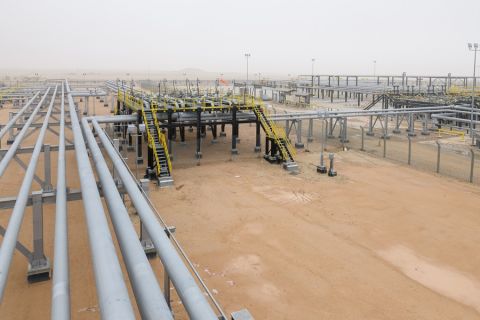U.S. Vice President Mike Pence rebuked European powers over Iran and Venezuela on Feb. 16 in a renewed attack on Washington's traditional allies, rejecting a call by Germany's chancellor to include Russia in global cooperation efforts.
In speeches and in private talks at the Munich Security Conference, Pence and Chancellor Angela Merkel laid out competing visions for how the West should address world crises.
"America is stronger than ever before and America is leading on the world stage once again," Pence told European and Asian officials in Munich, listing what he described as U.S. foreign policy successes from Afghanistan to North Korea, and urging support from American allies.
"America First does not mean America alone," he said, hailing the results of Donald Trump's presidency as "remarkable" and "extraordinary", and calling on the EU to follow Washington in quitting the Iran nuclear deal and recognising the head of Venezuela's congress, Juan Guaido, as the country's president.
Addressing an audience that included Trump's daughter Ivanka, Pence's speech was the latest attempt by a Trump administration official to put the president's "America First" agenda into a coherent policy plan.
European leaders are troubled by Trump's rhetoric, which they say is erratic and disruptive, citing his decision to pull out of the 2015 Iran nuclear deal as undermining an arms control agreement that prevented Tehran from developing a nuclear bomb.
But Pence—who last week accused Britain, Germany and France of undermining U.S. sanctions on Iran—repeated his demand for European powers to withdraw from the deal.
"The time has come for our European partners to withdraw from the disastrous Iran nuclear deal," he said, and later pressed Merkel over the issue in bilateral talks.
He also reiterated to her Washington's opposition to the Nord Stream 2 gas pipeline under construction between Russia and Germany under the Baltic Sea. "We cannot strengthen the West by becoming dependent on the East," Pence said.
Merkel, who made a robust defence of Germany's foreign trade relations and ties with Russia during her speech, said later it was unreasonable to assume that Russia would be an unreliable energy supplier.
Recommended Reading
Paisie: Crude Prices Rising Faster Than Expected
2024-04-19 - Supply cuts by OPEC+, tensions in Ukraine and Gaza drive the increases.
Brett: Oil M&A Outlook is Strong, Even With Bifurcation in Valuations
2024-04-18 - Valuations across major basins are experiencing a very divergent bifurcation as value rushes back toward high-quality undeveloped properties.
Marketed: BKV Chelsea 214 Well Package in Marcellus Shale
2024-04-18 - BKV Chelsea has retained EnergyNet for the sale of a 214 non-operated well package in Bradford, Lycoming, Sullivan, Susquehanna, Tioga and Wyoming counties, Pennsylvania.
Defeating the ‘Four Horsemen’ of Flow Assurance
2024-04-18 - Service companies combine processes and techniques to mitigate the impact of paraffin, asphaltenes, hydrates and scale on production—and keep the cash flowing.
Santos’ Pikka Phase 1 in Alaska to Deliver First Oil by 2026
2024-04-18 - Australia's Santos expects first oil to flow from the 80,000 bbl/d Pikka Phase 1 project in Alaska by 2026, diversifying Santos' portfolio and reducing geographic concentration risk.




